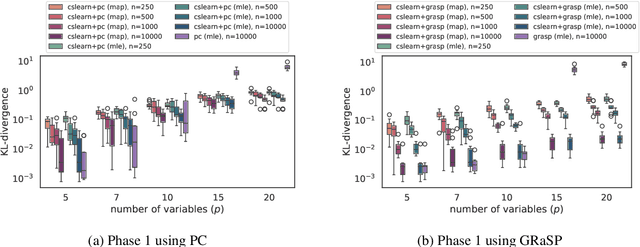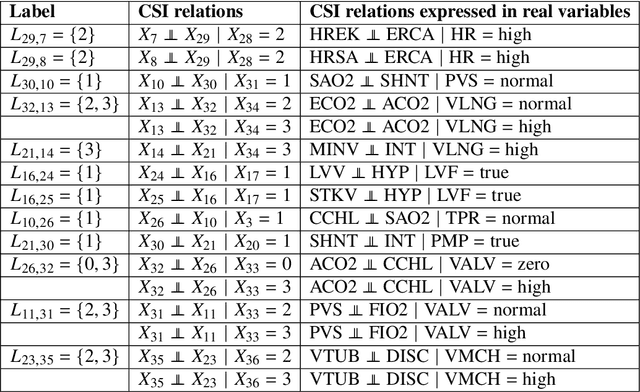Scalable Structure Learning for Sparse Context-Specific Causal Systems
Paper and Code
Feb 12, 2024



Several approaches to graphically representing context-specific relations among jointly distributed categorical variables have been proposed, along with structure learning algorithms. While existing optimization-based methods have limited scalability due to the large number of context-specific models, the constraint-based methods are more prone to error than even constraint-based DAG learning algorithms since more relations must be tested. We present a hybrid algorithm for learning context-specific models that scales to hundreds of variables while testing no more constraints than standard DAG learning algorithms. Scalable learning is achieved through a combination of an order-based MCMC algorithm and sparsity assumptions analogous to those typically invoked for DAG models. To implement the method, we solve a special case of an open problem recently posed by Alon and Balogh. The method is shown to perform well on synthetic data and real world examples, in terms of both accuracy and scalability.
 Add to Chrome
Add to Chrome Add to Firefox
Add to Firefox Add to Edge
Add to Edge